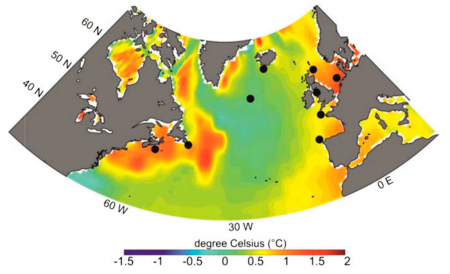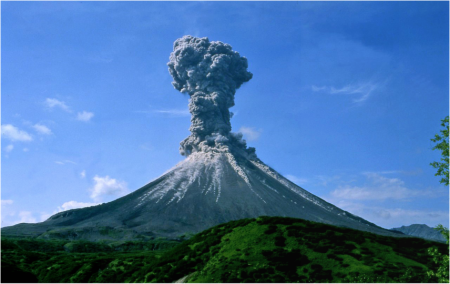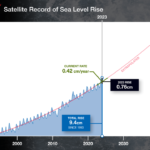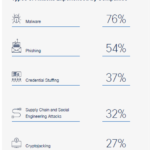August 11, 2016 – Scientists in the last week have admitted they erred in calculating sea level rise globally. In a journal report entitled, “Unabated global mean sea-level rise over the satellite altimeter era,” published in Nature Climate Change, the authors from University of Tasmania, Newcastle University and New Mexico State, describe sea-level rise is accelerating rather than stalling or dropping based on altimeter readings from satellites. This new report is consistent with a 2015 Harvard University study which also documented the speed up in sea-level rise.
Sea Level Rise a Problem Larger “Than We Initially Thought”
The new data reflects the input from Greenland, West Antarctica, and the Canadian Arctic archipelago. Previous to these two studies scientists were puzzled by data that suggested sea-level rise was slowing down in recent years. But in fact the new figures from satellite and ocean-wide telemetry is consistent with a 2.6 to 2.9 millimeter (approximately 1/10th of an inch) annual rise. This is a rate double the average of the 20th century.
So why the mistake? In a paper appearing in Scientific Reports, entitled, “Is the detection of accelerated sea level rise imminent,” the researchers point to the masking of altimeter data by the 1991 eruption of Mount Pinatubo and its impact on ocean content through the mid-1990s. The authors of that research were flummoxed by the lag in sea level rise. Mount Pinatubo’s eruption was the second largest volcanic eruption of the 20th century. The particulate matter in terms of ash deposited in the stratosphere was estimated to equal as much as 30 teragrams (about 10% of the total mass of aerosols we humans put into the atmosphere annually). Following the eruption there was a noticeable cooling of the globe and the world’s oceans based on telemetry collected from satellite observation. At the time there was no ARGO network of ocean temperature sensors. That meant we had an incomplete understanding of the condition of ocean sea levels. But today we understand the climate albedo effect on our oceans better than ever before because we have the sensors in place to accurately measure sea level rise as never before.
NASA recently produced a video representation of sea level changes from collected data over the last two decades. The images show a complex and cyclic pattern of rising and falling sea levels. They also show the redistribution of heat throughout the ocean, a contributor to higher sea levels. But when you watch the line graph in the lower right corner of the video you see a tracing of sea level rise that is disturbingly conclusive in terms of the evidence it presents. Sea levels are rising at an accelerating rate, a confirmation of the paper previously referenced in this posting.
What Else Could Possibly Go Wrong
In the latest study published in the Proceedings of the National Academy of Sciences entitled, “Climate influence on Vibrio and associated human diseases during the past half-century in the coastal North Atlantic,” the researchers report that sampling of the marine microbial biomass in the North Atlantic over the last 50 years indicates that Vibrio, a pathogen responsible for cholera is spreading into more temperate locales fed by a warming trend in sea surface temperatures.

The researchers based in University of Genoa, the Alister Hardy Foundation for Ocean Science and University of Plymouth, UK, the Helmhotz Centre for Infection Research, Germany, and the Johns Hopkins Bloomberg School of Public Health and University of Maryland, studied archival samples from plankton records collected by the Continuous Plankton Recorder survey conducted over a period from 1958 to 2011. They specifically assessed the abundance of Vibrio in nine areas of the North Atlantic and North Sea. They looked at surface ocean temperatures over the same period in the same locales. What they discovered was a positive correlation between increased surface ocean warming, approximately 1.5 Celsius (2.7 Fahrenheit), and Vibrio presence. They studied the health records for these areas which showed an “unprecedented occurrence of environmentally acquired Vibrio infections in the human populations of Northern Europe and the Atlantic coast of the United States” further confirming the pathogen’s presence and impact.
On the map of the North Atlantic seen in the image below the differences in average surface temperatures are indicated by degree of warming. Red and orange areas are those that have warmed the most. The black dots represent the Vibrio sampling areas.

The threat of marine pathogens like Vibrio has a distinct parallel with land diseases spread by mosquitoes. As the atmosphere warms mosquito habitats are moving poleward and along with the mosquitoes comes a viral package that includes Malaria, Zika, Dengue and Chikungunya. So if the mosquitoes don’t get you on land then the heat that makes you go for a swim in the ocean may get you as well. Or if you decide to eat raw or undercooked shellfish, you may ingest Vibrio and contract an infection that is believed to have caused a number of deaths in Florida in 2015.
For the medical establishment in Europe and the United States it means they now must be on the lookout for infections not present in the past, another consequence of a warming climate.





















